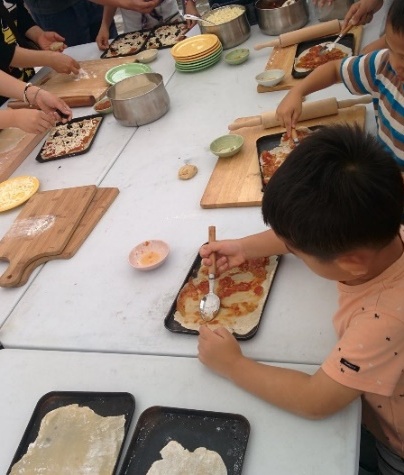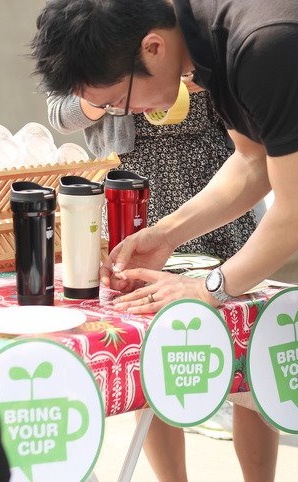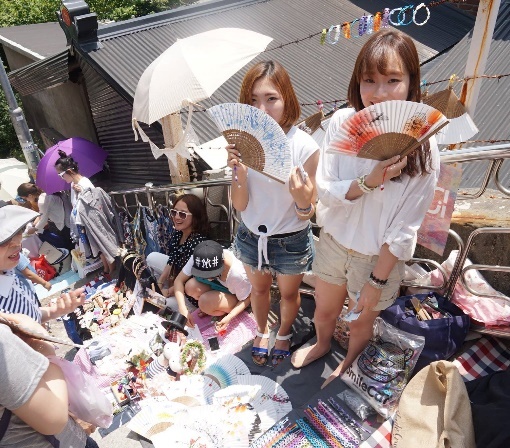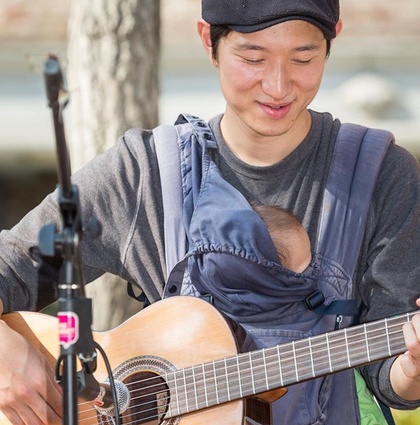
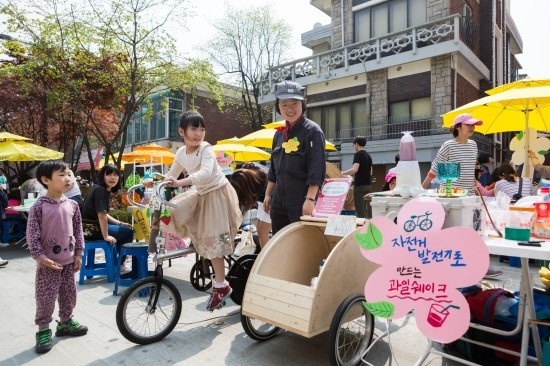
“There is an island between people. I want to go to the island.”
This short poem ‘Island’ which is written by Hyunjong Jeong (1989) has been steadily loved by Korean people who have had enough of the heartless human relationships of capitalized society. The economy of Korea has continued to grow fast for the last 40 years. This led to uncontrolled urbanization, excessive anonymity, and the collapse of neighbourhood communities, especially in Seoul. Many dedicated social activists continue to look for the solutions to mediate the problem. Some of them have succeeded and have made very interesting changes in Seoul. Here I want to introduce the stories of 5 innovative community markets in Seoul city, which are rebuilding relationships in local communities and stimulating local economies as well.
Byulbyul market – Improving civic participation and responsibility
‘Byulbyul’ means ‘all sorts’ in Korean. The community organization Guro Is a College of Art, named the market wishing every people living Guro borough can get along together and talk about everything in the market.
As civil servants belonging to Guro borough council are also a part of the community, a group of them hold community consultation in the market so that they could get closer to the local people and listen to them directly. Owing to the amicable atmosphere of the Byulbyul market, people feel comfortable giving their opinions and suggestions to civil servants.
Byulbyul market not only cares about the local neighbourhood, it also cares about the environment of the global village. Operators of Byulbyul market banned the use of disposable tableware by all the food stands inside the market; food stalls in Byulbyul market do not offer disposable dishes; and customers need to wash their own dishes. If you don’t have a minute for dish washing or you have a health condition, volunteers will be happy to help you.
Neuljang – Bartering system
‘Neul’ represents ‘always’ and Jang represents ‘market’. Neuljang opens every day in the middle of one of the busiest areas in Seoul where it is surrounded by hundreds of sky scrapers. Hyunjin Park, the representative of Neuljang union, said she wishes Neuljang to be an open school to learn the art of living as well as a special farm to cultivate the future of the community.
Anybody can open their own class and teach their own neighbours in Neuljang market. There are many talented local people who are eager to share their skills and knowledge with their neighbours. So you can easily learn a number of useful for your daily life like woodworking, ceramics, weaving, cooking, roasting coffee beans, brewing beer and so on.
Don’t worry if you suddenly realize that you have ran out of your coffee having no cash with you on a lazy Sunday afternoon. You can buy high quality fair trade coffee without a penny from the barter stands in Neuljang. You can exchange your old stuffs with a hundred kinds of new and old products in Neuljang. Bartering at Neuljag will bring you several advantages at the same time; more space for your home, less waste for this world, new stuff for you and your neighbour.
Yeonnam Market – Building the local economy
The street of Yeonnam village is the marketplace of Yoennam market. Living & Art Centre, a social enterprise operating Yeonnam market, opens its doors to everyone in the community except professional merchandisers.
As the Living & Art Center want Yeonnam market to be a community hub for Yeonnam town, they try to exclude professional merchandisers from the market and engage with more local people during decision making.
People living in Yeonnam village work together to make the market better by sharing their ideas and talents and time. Definitely, it is an amazing thing to see people living in one of the most capitalized city in the Asia improve their quality of life without any high-tech products or even without money.
Dal Market – Supporting social entrepreneurs
Youngdeungpo borough council opened Dal market in 2011 to offer a place for showcasing social enterprises based in Youngdeungpo so that social entrepreneurs can display and sell their products to local residents and mix with local communities.
With 80 different stalls and 3,000 visitors a day, Dal market has positioned itself as one of the most important spaces in the city, not only for social enterprises but also for the whole community.
To stay popular and keep gathering local people, Dal market offers various kinds of events like gigs, and learning activities inside of the marketplace.
Itaewon Stairway market – maximising unused spaces
The population of Seoul is over 10 million and the population density is 3 times that of London and 8 times that of Rome. Due to the high population density and expensive property price, most communities have only some tiny empty spaces even not enough for a tiny stall.
However, necessity is always the mother of invention. A group of young residents living in Usadan village opened a very unique community market in the centre of Seoul city by fully utilizing their surroundings in 2013. With the creative ideas and passion of young people, narrow and steep stairway turned into attractive tourist attraction and cultural hub for the community.
This blog was written by Youngwoo Jeon, who is working at Social Life as a secondee from Seoul Government. Youngwoo has 10 years experience as a senior officer at Central Government of Korea and Seoul City Government. He has worked for budget planning/policy planning department during most of his career as a civil servant.
If you need any further information, please don’t hesitate to contact Youngwoo on ainsof16@gmail.com.
